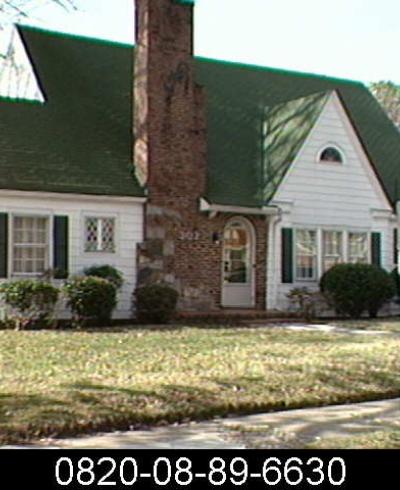William Hervey Wheeler attended American Flyers School in Ardmore Oklahoma, where he earned his commercial pilot's license and a multiengine rating at age 19. He opened his own flying school at Horace Williams Airport that same year (1962.) In 1966, he became the first African-American pilot for Piedmont Airlines.
In 1969, he founded his own airline, Wheeler Flying Serivce - a commercial air carrier - making him the first African-American to own his own airline. The airline grew through the 1970s and 1980s, becoming Wheeler Airlines. In the 1980s, the airline flew more than 40,000 passengers annually. The airline ceased operations in 1991.
Below text in italics is from:
"Distinguished African Americans in Aviation and Space Science By Betty Kaplan Gubert, Miriam Sawyer, Caroline M. Fannin" Text was digitized with OCR; apologies for any errors in conversion that I have not caught.
Warren Wheeler was born on October 1,1943, in Durham, North Carolina. He had an older sister, Julia. His father, John H. Wheeler, headed a family business, the Mechanics and Farmers Bank, the fourth largest African American bank in the country, and was a prominent citizen of the community.
His mother, Selena Warren Wheeler, was a librarian. Mrs. Wheeler achieved local renown when, while still attending college, her father, Dr. Stanford Warren, president of the Board of Trustees of the Durham Colored Library, asked her to act as library director. Although she had originally planned to attend law school, she remained at the library until her retirement in 1945. Under her direction, the library flourished, becoming the center of the African American community. She also began to collect and catalog books of African American interest. This collection, which now has 6,868 volumes, was named the Selena Warren Wheeler Collection in her honor.
According to Mrs. Wheeler, Durham provided a hospitable climate for black enterprises, including the library that she directed. "Durham has always been a little bit better. I think that all the black businesses had a lot to do with it. There was a lot of communication between the leaders of the 'black and white] communities. These people talked together. They couldn't help but do it." The business climate favorable to African American enterprise that Mrs. Wheeler found in Durham was to be of inestimable help to her son when he founded a business.
It was his sister who first stimulated young Wheeler's interest in flying. She was taking flying lessons and took him for an airplane ride. The young man decided to take lessons as well and received his private pilot's license at 15. He immediately focused on flying as a career, despite his father's wish that he go into the banking business.
Wheeler attended North Carolina Agricultural and Technical University for a year but he decided his interests lay elsewhere. He is quoted as saying, "I didn't know what I wanted to do, but I knew I was no banker." Dropping out of college, he enrolled in the American Flyers School in Oklahoma City, Oklahoma. Having successfully completed this course at 19, Wheeler was fully rated to fly multiengine planes and to teach others to fly.
In 1962, the civil rights movement was underway and picking up momentum. Segregation was still a fact of life, particularly in the South. No airline would hire Wheeler as a pilot, even though he was fully qualified. Part of the problem was his youth and inexperience, but a larger part of it was due to prejudice. Ar that time, there were no African Americans employed as pilots by major commercial airlines. Most white Americans believed that no black man could be a pilot, whatever his credentials. Things, however, were beginning to change.
Wheeler opened his own flight school and charter service in an effort to get more flying hours. "The whole idea of the school was to get enough flight hours to get hired by an airline." In this he was successful, and at the age of 22 Wheeler was hired as a pilot by Piedmont Airlines in 1965. He was Piedmont's first Black pilot, and the youngest person in his training class. He was also among the first 10 Black commercial pilots in the United States.
In 1969, while still employed by Piedmont, where he was now a captain, Wheeler took the first steps toward opening his own regional flying service. He took a leave of absence from his job, and, borrowing $36,000 from the Small Business Administration, started Wheeler Flying Service. He also received assistance from the Coastal Plains Regional Commission, which wanted to promote air transportation on the regional level in North Carolina. The business started modestly, with one airplane and one employee—Wheeler.
According to Wheeler, "At first, people were reluctant to try us. We were a new business, and, quite naturally, they were skeptical; they didn't think we'd be around long." However, Wheeler Airlines obviously filled a need, and by 1976 the company's fleet consisted of three Cessna-402 planes used for scheduled commuter service and another eight planes, which were used for charter flights. The company employed 27 persons, including 12 pilots, and was earning revenues in excess of $20,000 a month, according to an article in Sepia in 1976. About 80 percent of Wheeler's business consisted of white businessmen. Many of these were employed by Burroughs Wellcome, a major pharmaceutical firm with headquarters in Durham and a factory in Greenville, 100 miles away. The U.S. Postal Service and courier services for banks made up the balance.
Wheeler retained his connection with Piedmont, flying 65 hours a month for them. According to Wheeler, "Some people think I'm trying to get inside information about Piedmont by flying for them. Actually, Piedmont doesn't see me as being in competition with them, and neither do I. My airline fills in gaps in their schedule, and all they ask is that I keep them informed of what I'm up to." Wheeler Flying Service also served as a feeder airline for Piedmont and other national air carriers. On occasion, the large carriers asked Wheeler to delay their flights for a few minutes so that their passengers could make connections to their final destinations in rural North Carolina.
Work at Wheeler Flying Service was demanding. All employees, including pilots, had to pitch in and help with chores like ticket selling and baggage handling. Nighttime phone calls about schedules and charters were forwarded to staffers' home telephones on a rotation basis. But none of the employees worked harder than Wheeler, who found it necessary to maintain two apartments—in Durham and in Norfolk, Virginia—in order to keep up his hectic schedule.
As a black-owned airline, Wheeler Flying Service was able to offer opportunities to young African American pilots. Warren Wheeler was cognizant of his responsibilities to offer a helping hand to other black people. According to Wheeler, "I always have in the back of my mind that I want to hire blacks. Fortunately, more blacks are becoming competent pilots, but I can't hire someone who is not the most qualified applicant because of color.. I believe in hiring people on merit, though anyone who pretends not to be prejudiced in favor of his own race is kidding himself."
Among African Americans who have been given an opportunity by Wheeler is Jill Brown, who in 1974 became the first black woman accepted by the U.S. Navy to train as a pilot. Shirley Tyus, now a pilot at United Airlines, also flew for Wheeler Airlines. In 1980, a federally subsidized employment program, CETA (named after the Comprehensive Employment and Training Act passed by Congress), allowed Wheeler to hire 12 Black candidates for flight training. Wheeler is credited with having trained more than 100 pilots, black and white.
In 1986, the airline business had changed. Large and commuter airlines were merging, and larger carriers were looking to take over lucrative routes formerly serviced by local carriers. Wheeler Flying Service was a victim of these trends. Wheeler was forced to file for Chapter 11 bankruptcy proceedings in 1986, ceasing operations shortly thereafter. Warren Wheeler became a pilot with US Air, from which he retired in 1995.
In 1992, Wheeler was nominated to the board of directors of Opportunity Skyway and was unanimously elected for a two-year term. Opportunity Skyway, a nonprofit corporation based in Maryland, was dedicated to keeping teenagers in school, and encouraging them to work hard and prepare for successful careers. Wheeler was chosen because of his abiding interest in giving minority and disadvantaged youths an opportunity to choose careers in aviation.


Submitted by George Suggs (not verified) on Mon, 3/17/2014 - 10:58pm
As a young student growing up in Durham in the
1950's- 1968 Wheeler Airline history was part
of our education in elementary school. Yes I went
to Stanford Warren as a child to checkout books
I am a retired educator who moved to South Carolina
In 1980 as a coach (football/track at South Carolina
State univ. ). It was great to read about Wheeler
Airline.....as a A&T graduate 1972 I was surprised
To descover that Mr Wheeler started out at A&T
We didnot have Air force ROTC at that time ....
History might have taken another direction
Submitted by Joy Valentine (not verified) on Thu, 5/8/2014 - 7:24pm
Thank you Mr. Suggs! I was having a moment of nostalgia and was thinking about mr. Wheeler, whom we called "Warren" and his lovely mother. I was a student at Shaw University in Raleigh and the Wheelers made it possible to have my first full-time job opportunity. As you stated in your article, employees performed all duties. I handled reservations, wrote tickets, served as customer service agent and loaded baggage! I learned agreat deal and began flying lessons. While working at Wheeler, a supervisor at Eastern Airlines approached me remarking that he liked my work ethic and offered me a job at Eastern. When I told Mrs. Wheeler I was leaving, she lamented, "They always take our good, pretty girls."
Add new comment
Log in or register to post comments.